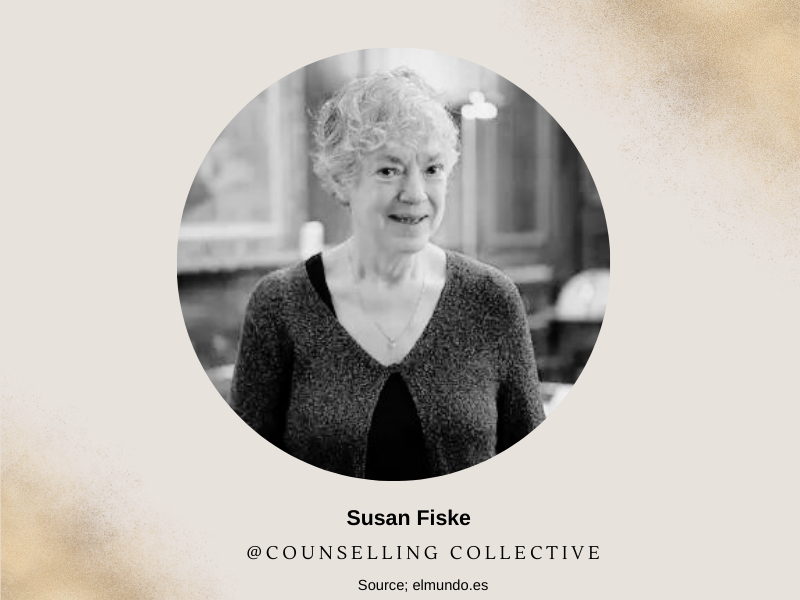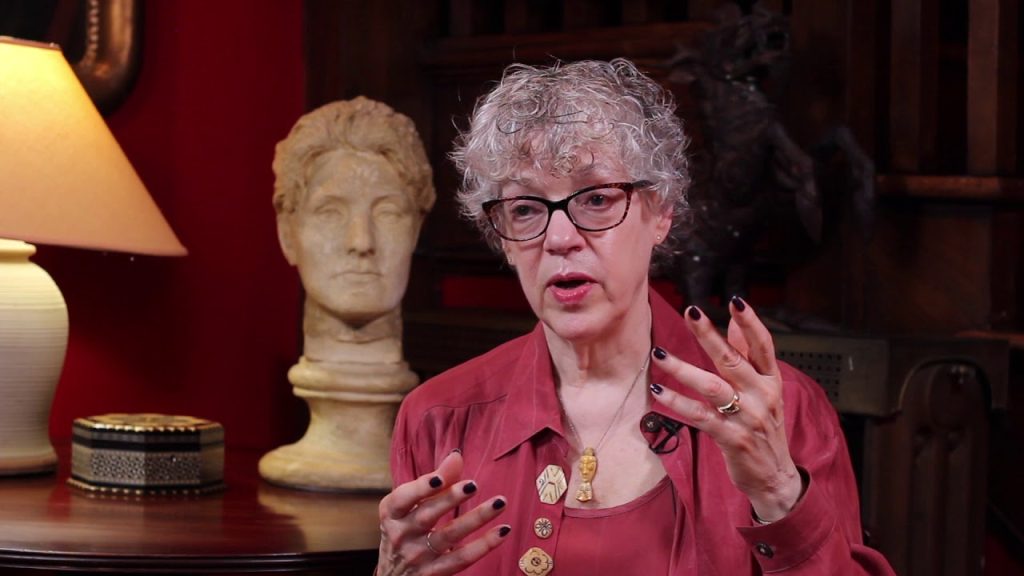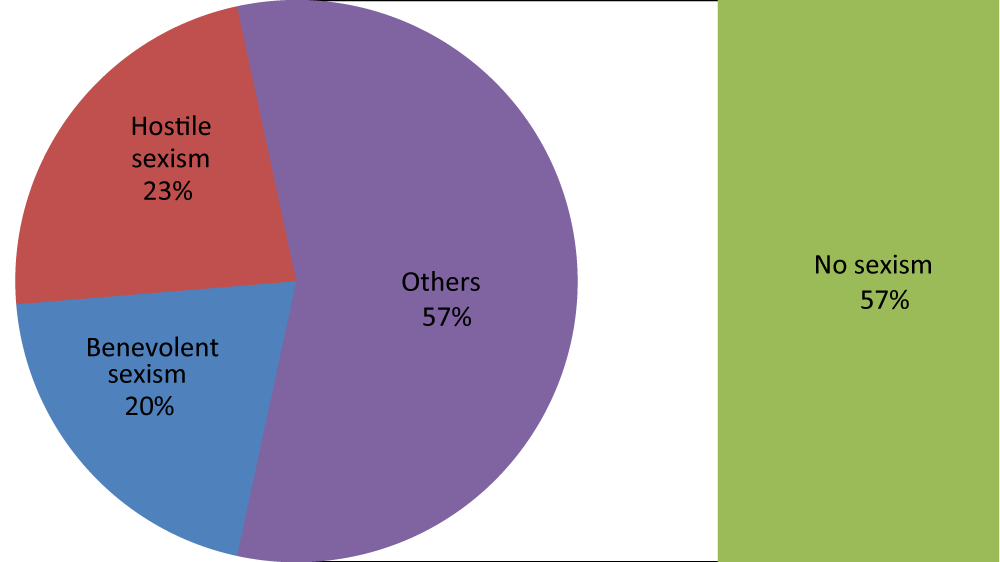Contents
Introduction
Susan Fiske is a prominent American social psychologist known for her influential research on social cognition, stereotypes, prejudice, and discrimination. Fiske’s work has profoundly shaped our understanding of how people perceive, categorize, and interact with others based on social group membership. Her contributions to psychology have had a significant impact on social psychology, cognitive psychology, and applied fields such as organizational behavior and public policy. Fiske’s research has advanced both theoretical and practical knowledge, informing interventions aimed at reducing bias and promoting social justice.

In this article, we will explore Susan Fiske’s groundbreaking research on social cognition, stereotypes, and prejudice, delving into how her work has influenced our understanding of social behavior and contributed to reducing bias in society.
Early Life and Education
Susan Tufts Fiske was born on August 19, 1952, in Chicago, Illinois. She grew up in a family that valued education and intellectual pursuits. Her father, Donald W. Fiske, was a well-known psychologist who specialized in personality and assessment, and her mother, Barbara Page Fiske, was a social worker. Fiske’s early exposure to psychology and social issues influenced her decision to pursue a career in psychology.
Image Source: lamenteesmaravillosa.com

Fiske’s academic journey began with an interest in understanding human behavior and social dynamics. She was particularly fascinated by how people’s perceptions and attitudes toward others are shaped by social categories such as race, gender, and socioeconomic status. This curiosity drove her to explore social psychology, where she could investigate these issues through scientific research.
Educational Journey
| Aspect | Details |
| Early Education | Fiske attended local schools in Illinois, where she developed a strong foundation in the humanities and sciences. |
| Radcliffe College | Fiske earned her Bachelor of Arts degree in Social Relations in 1973. |
| Harvard University | Fiske pursued her Ph.D. in Social Psychology, completing her dissertation on person perception under the supervision of Shelley Taylor in 1978. |
| Academic Career | After completing her doctorate, Fiske held academic positions at various institutions, including Carnegie Mellon University and the University of Massachusetts, Amherst. She later joined the faculty at Princeton University, where she has been a professor since 2000. |
Timeline of Early Influences
| Aspect | Details |
| Shelley Taylor | Taylor’s work on social cognition and the mental shortcuts people use to process information influenced Fiske’s research on stereotypes and prejudice. |
| Donald T. Campbell | Campbell’s research on social cognition and attribution theory shaped Fiske’s approach to understanding intergroup relations. |
| Gordon Allport | Allport’s seminal work on prejudice provided a theoretical foundation for Fiske’s investigations into the cognitive processes underlying bias. |
| Alice Eagly | Eagly’s research on gender stereotypes and social role theory informed Fiske’s studies on the intersection of social categories and power dynamics. |
Major Theories and Works

Stereotype Content Model
Susan Fiske is best known for developing the Stereotype Content Model (SCM), which posits that stereotypes can be categorized along two dimensions: warmth and competence. According to this model, people perceive social groups based on these dimensions, leading to four primary types of stereotypes:
- High Warmth, High Competence: Admiration (e.g., in-group, close allies).
- High Warmth, Low Competence: Paternalistic stereotypes (e.g., elderly, disabled).
- Low Warmth, High Competence: Envious stereotypes (e.g., wealthy, professional).
- Low Warmth, Low Competence: Contemptuous stereotypes (e.g., homeless, welfare recipients).
Image Source: toolshero.com

Ambivalent Sexism Theory
Fiske, along with Peter Glick, developed Ambivalent Sexism Theory, which distinguishes between two types of sexism: hostile sexism and benevolent sexism. Key elements include:
- Reinforcement of Gender Roles: Both hostile and benevolent sexism work together to reinforce traditional gender roles. While hostile sexism directly challenges gender equality, benevolent sexism subtly upholds the status quo by positioning women in stereotypical roles.
- Hostile Sexism: This aspect of the theory represents overtly negative and antagonistic attitudes toward women. It often manifests in beliefs that women are inferior to men, seeking to undermine women’s abilities, rights, and roles in society.
- Benevolent Sexism: Benevolent sexism involves seemingly positive but ultimately patronizing beliefs about women. It includes attitudes that idealize women as pure, moral, and nurturing but also reinforce traditional gender roles that limit women’s autonomy and power.
Image Source: heighpubs.org

Social Cognition
Susan Fiske is renowned for her contributions to the field of social cognition, which explores how people perceive, interpret, and remember information about others and social situations. Her work has significantly influenced our understanding of stereotypes, prejudice, and interpersonal relationships. Key elements include:
- Attribution Processes: The study of social cognition includes understanding how people attribute causes to behaviors, whether attributing actions to internal dispositions (e.g., personality traits) or external situations (e.g., environmental factors). These attributions affect how we judge and interact with others.
- Schema Theory: Social cognition is deeply rooted in schema theory, where schemas are mental structures that help individuals organize and interpret information. These schemas influence how people perceive social interactions and guide their responses to others.
Image Source: verywellmind.com

Power and Interpersonal Relations
Susan Fiske has extensively explored the dynamics of power in interpersonal relations, Her research sheds light on the role of power in shaping hierarchies, stereotypes, and social judgments. Key elements include:
- Power Dynamics in Relationships: Power imbalances can significantly affect relationships, influencing how individuals communicate, make decisions, and resolve conflicts. Those with more power may dominate interactions.
- Power as Control: Power in interpersonal relations is often defined by the ability to control or influence others’ actions, resources, and outcomes. This control can be exerted through authority, expertise, or social status.
- Power and Stereotyping: Fiske’s work highlights how power can reinforce stereotypes. Individuals with power may rely on stereotypes as cognitive shortcuts, which can perpetuate social inequalities and biases in judgment.
Image Source: milnepublishing.geneseo.edu

Envy Up, Scorn Down: How Status Divides Us
Susan Fiske’s research delves into the complexities of social hierarchies, focusing on how individuals experience emotions like envy and scorn based on their perceived social status. This theory explains the dynamics of upward and downward social comparisons and their implications for interpersonal relations. Key points include:
- Status Anxiety: The constant comparison with others, either above or below, contributes to status anxiety, affecting self-esteem and social behavior.
- Upward Envy: Individuals often feel envy toward those who are perceived to have higher status, success, or resources. This can lead to feelings of inadequacy or resentment.
- Downward Scorn: Conversely, those with higher status may look down upon individuals of lower status with scorn or contempt, reinforcing social divides.
Image Source: greaterkashmir.com
Psychologists Influenced by Fiske

- Peter Glick – Glick’s work on ambivalent sexism and gender stereotypes has been heavily influenced by his collaborations with Fiske (Glick & Fiske, 1996).
- Amy Cuddy – Cuddy’s research on social perception and nonverbal behavior draws from Fiske’s theories on warmth and competence (Cuddy, 2012).
- Jennifer Eberhardt – Eberhardt’s studies on racial bias and the criminal justice system have been shaped by Fiske’s work on stereotypes and prejudice (Eberhardt, 2019).
- Toni Schmader – Schmader’s research on stereotype threat and performance has been influenced by Fiske’s insights into the cognitive effects of stereotypes (Schmader, 2002).
- Claude Steele – Steele’s work on stereotype threat and social identity theory has been informed by Fiske’s research on social cognition and intergroup relations (Steele, 1997).
Impact on Psychology
Contributions to Related Fields
Fiske’s interdisciplinary approach has extended her influence to areas such as education, organizational behavior, and public policy. Her insights into stereotype formation and prejudice have informed interventions aimed at reducing bias in educational and workplace settings. In organizational behavior, Fiske’s research on power dynamics and social cognition has contributed to the development of training programs and policies designed to foster inclusive and equitable work environments. Her work has also influenced public policy discussions on issues related to discrimination, social justice, and equity, highlighting the importance of evidence-based approaches to addressing social problems.
Legacy and Influence
- Long-Term Impact: Susan Fiske’s legacy is marked by her pioneering research in social cognition, stereotypes, and power dynamics. Her work has laid the groundwork for many theories and continues to influence contemporary research and practice, advancing scientific literacy and social justice.
- Recognition and Honors: Fiske has been honored with numerous accolades, including fellowships at the American Academy of Arts and Sciences and the American Psychological Association. She has received prestigious awards like the APA Distinguished Scientific Contribution Award and the Kurt Lewin Award, recognizing her significant contributions to psychology and social justice.
- Criticism and Controversies: While Susan Fiske has garnered significant recognition for her contributions to psychology, her work has not been without criticism. Some argue that her focus on cognitive processes and social categorization may overlook the broader structural and systemic factors that contribute to discrimination and inequality. Additionally, the emphasis on warmth and competence in the Stereotype Content Model has been critiqued for potentially oversimplifying the complexity of social perceptions and intergroup relations. Despite these criticisms, Fiske’s pioneering research and theoretical contributions continue to inspire debate and further investigation in the fields of social psychology and beyond.
Conclusion
Susan Fiske’s life and work have profoundly shaped the fields of psychology, particularly in the areas of social cognition, stereotypes, and power dynamics. Her theories on social perception, prejudice, and discrimination offer valuable insights into human behavior and intergroup relations. By emphasizing the importance of scientific inquiry and evidence-based approaches, Fiske has provided a comprehensive framework for understanding and addressing social biases and promoting social justice. As her legacy continues to unfold, Fiske’s contributions to psychology and public engagement will likely inspire future generations of researchers, educators, and practitioners.
Bibliography
- [1] Cuddy, A. J. (2012). Presence: Bringing Your Boldest Self to Your Biggest Challenges. New York: Little, Brown and Company.
- [2] Eberhardt, J. L. (2019). Biased: Uncovering the Hidden Prejudice That Shapes What We See, Think, and Do. New York: Viking.
- [3] Fiske, S. T. (2004). Social Beings: Core Motives in Social Psychology. New York: Wiley.
- [4] Fiske, S. T. (2011). Envy Up, Scorn Down: How Status Divides Us. New York: Russell Sage Foundation.
- [5] Fiske, S. T., & Malone, C. (2013). The Human Brand: How We Relate to People, Products, and Companies. New York: Wiley.
- [6] Fiske, S. T., & Taylor, S. E. (2008). Social Cognition: From Brains to Culture. New York: Sage.
- [7] Glick, P., & Fiske, S. T. (1996). The Ambivalent Sexism Inventory: Differentiating hostile and benevolent sexism. Journal of Personality and Social Psychology, 70(3), 491-512.
- [8] Schmader, T. (2002). Gender identification moderates stereotype threat effects on women’s math performance. Journal of Experimental Social Psychology, 38(2), 194-201.
- [9] Steele, C. M. (1997). A threat in the air: How stereotypes shape intellectual identity and performance. American Psychologist, 52(6), 613-629.






